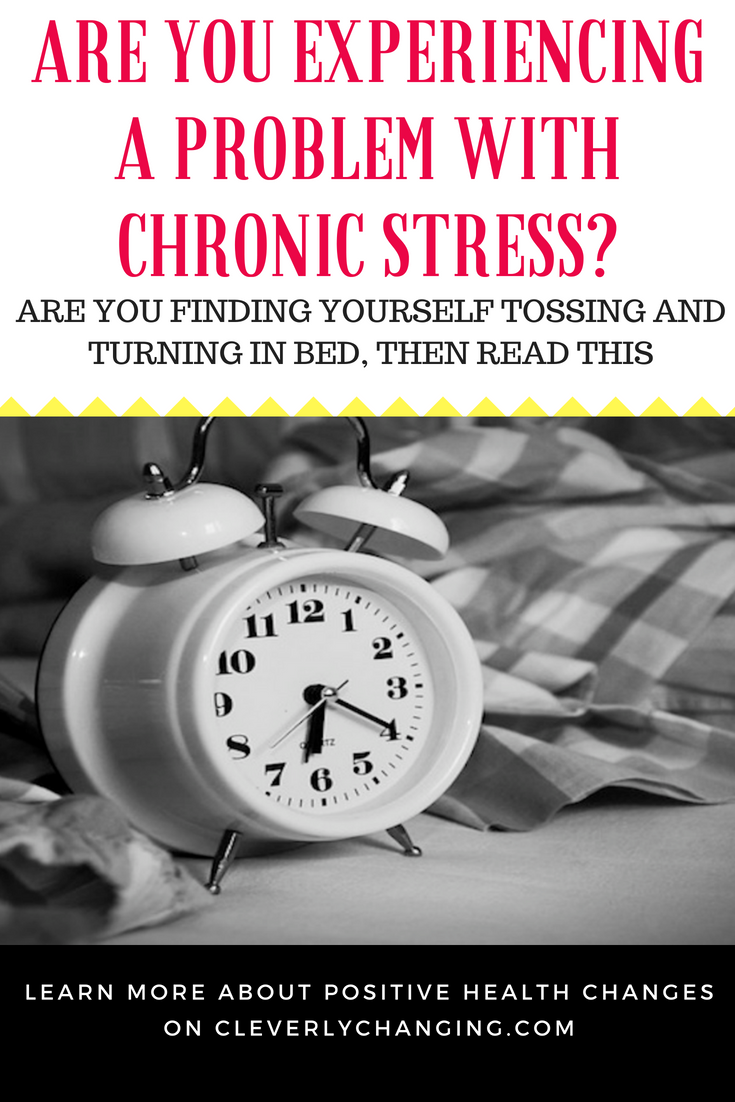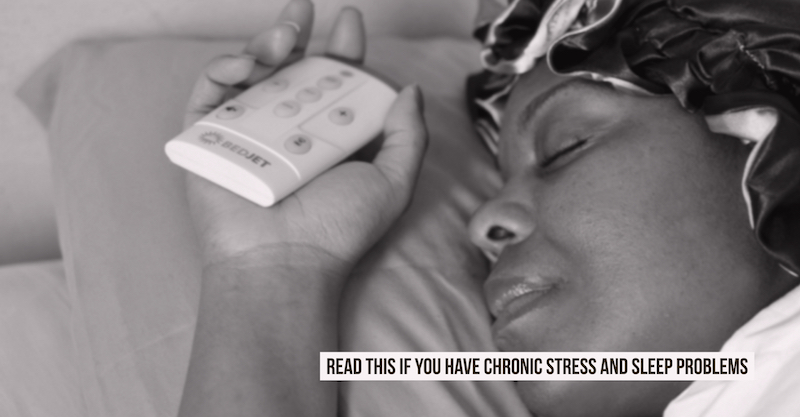Are you experiencing a problem with chronic stress, and finding yourself tossing and turning in bed at the same time?
To enhance your well-being, you need exercise and food – but you also need sleep. When you fail to get sufficient quantities and quality of sleep, your ability to manage stress is impaired significantly, and you need to keep this in mind when you are facing a problem of chronic stress.
Everyone faces stressful situations sometimes – from a workmate annoying you, to work assignments taking a mental toll on you. However, the problem becomes worse when you are not sleeping enough – it is essential to maintaining your energy levels during the day, protects you from illnesses (or at least most of them), and reduces stress.
Even on the days you fall sick, you notice that the body is constantly tired, and you want to crawl into your bed more often to get a nap. This is because sleep encourages the body to get into a mode of conservation, and allows it to redirect most of its energy to the immune system to help you recover faster.
The interesting link between stress and sleep
Not everyone handles stress in the same way, as there are people who black out completely when they are stressed, while others cannot seem to sleep properly. In fact, the difference could be in emotional approaches to handling the stressful days – those who focus on anxiety and negative emotion have higher chances of shortening their sleep periods, compared to those that focus on the current task and ignore their emotions.

What is the big deal with stress and sleeping though?
It may have been known for many years, but science is now confirming the importance of sleep in regulating your reactions to stress, as it is able to erase stressful memories and bad emotions as you sleep. In fact, when you are in the REM sleep phase, when dreams are occurring, the stress hormones such as cortisol decrease in the body and brain alike.
This could be due to REM stage of sleep allowing the brain to manage difficult experiences, such as repeated nightmares in PTSD (Post Traumatic Stress Disorder) patients. Research on the brain has also revealed that norepinephrine levels decrease significantly when dreams occur, and this allows the brain to sort out whatever memories that had formed throughout the day.
How do you sleep better even when stressed?
Avoiding stimulants
Just before you head to bed, do your best to stay away from caffeinated drinks and exercise sessions. This is because exercise helps the blood to circulate faster in the body, while caffeine is a stimulant.
Both of these will lead the body to have a better state of alertness than relaxation, which is the opposite goal of when you are trying to catch some sleep.
Avoid taking alcohol to induce sleep
Alcohol is a depressant, because it slows down the signals in the brain and makes you sluggish – but sleeping after an alcohol drinking session is not exactly the nest idea when you are trying to get healthy quality of sleep. In addition, deciding to use alcohol when trying to sleep is dangerous, and it can easily be a gateway to addiction. Instead of alcohol consider taking a Valerian root tea or the capsules.
Eat correctly
When you want to sleep, it is important for the body muscles to be relaxed as much as possible, so you can take foods or supplements that are rich in magnesium and calcium. For instance, having a dinner of green leafy vegetables and a glass of some warm milk before going to bed can help you get a sufficient dose of these two minerals.
Having a diet that is rich in carbohydrates and proteins will assist the body to calm down and the brain to relax. However, it is also important to remember – avoid eating very heavy meals before going to bed, or at least two hours before bed. This is because it takes a lot of energy for your stomach to digest all that food, and it will keep you awake when you should be sleeping – otherwise you will wake up feeling bloated.

Encourage production of melatonin at night
The hormone melatonin is a very important chemical that the body produces when it is regulating the sleeping cycle – its increase will make you feel drowsy or sleepy, while its decrease will help you to wake up and stay awake.
You can use a mattress from Tuft & Needle to help you sleep better or choose not to – but the thing is that the production of this hormone is a direct effect of exposure to light. When you are in the dark, the brain secretes more amounts of the hormone and leads you to feel sleepy. For this reason, it is important that you close the curtains and dim the lights or switch them off when you are trying to sleep.
In addition, try to reduce your exposure to the TV, computers and any other electronic device, and if you use your phone, reduce its brightness to minimum levels to encourage your body to go to sleep.
Create a regular sleep schedule and stick to it
When you want to achieve better sleep quality, it is important that you are in sync with the natural sleep-wake cycle. It’s simple – make sure you have a regular sleeping time and waking time, and maintain this as much as possible, even on weekends.
In the case of making up for lost sleep, try to set some time aside for a daytime nap, instead of sleeping in and waking up late. This will also allow you to repay any sleep debts without compromising the natural sleep-wake patterns.

Exercising early on
It is better to exercise during the day or early in the morning, compared to when you are about to sleep. It will allow you to burn more amounts of energy and fire the body, which means you will be tired enough at night to sleep better.
Conclusion
Sleep is very important in the maintenance of health, but it is even better in managing stressful situations. How do you know if you have slept enough though? If you can wake up before your alarm and you feel mentally fresh and focused, then you have rested enough.
Enjoyed this post then read my bedjet review about how it can improve your sleep as well.


